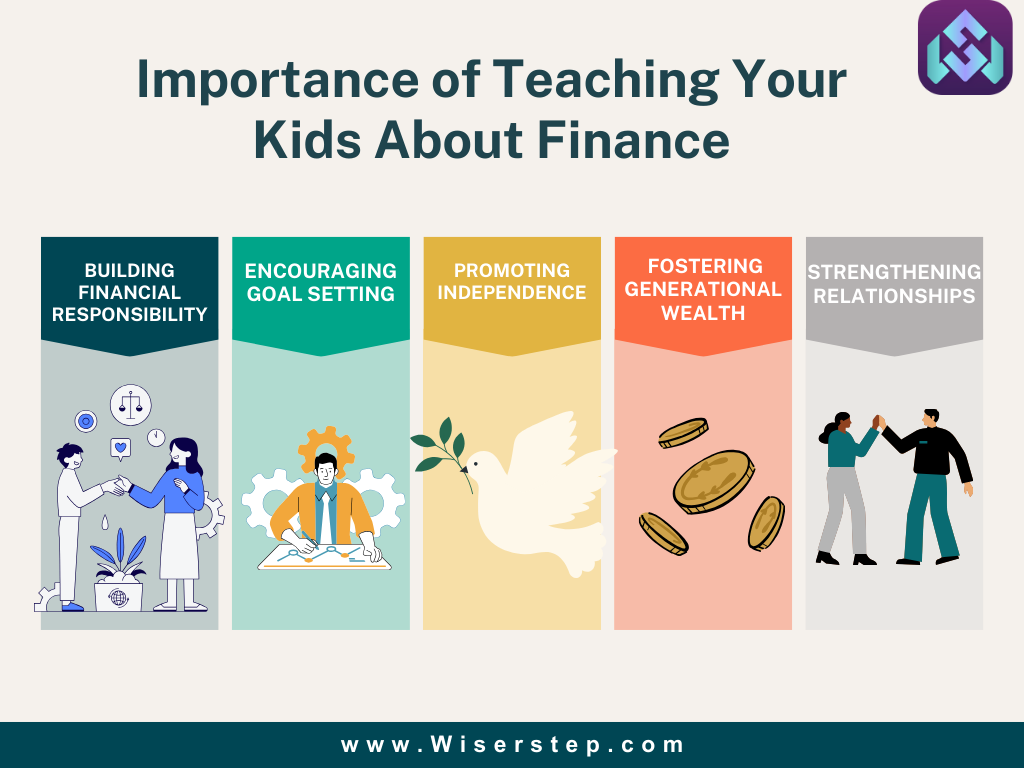In today’s complex and fast-paced world, financial literacy is a crucial skill that can significantly impact an individual’s success and well-being. While schools may offer some basic financial education, parents play a vital role in shaping their children’s understanding of money and how to manage it effectively. Teaching your kids about finance is not only practical but also essential for their future financial stability and success. In this blog, we’ll explore why teaching your kids about finance is so important.
1. Building Financial Responsibility
One of the primary reasons to teach your kids about finance is to instill a sense of responsibility from an early age. Understanding the value of money and how to budget it effectively helps children become more responsible in their spending habits. By teaching them to save, invest, and spend wisely, you set the foundation for a financially responsible future.
2. Avoiding Debt Traps
In a world where credit is readily available, it’s crucial to educate your children about the dangers of debt. Teaching them about credit cards, loans, and interest rates will empower them to make informed decisions and avoid falling into debt traps that can plague individuals for years. Financial literacy can be the key to steering clear of financial crises.
3. Encouraging Goal Setting
Teaching kids about finance also fosters goal-setting skills. When children learn to save money for specific purposes, they develop a sense of discipline and determination. Whether it’s saving for a new toy or a college education, setting and achieving financial goals helps children understand the importance of planning for the future.
4. Nurturing Critical Thinking
Financial education encourages critical thinking and decision-making skills. Children learn to evaluate choices, consider consequences, and make informed financial decisions. This ability to think critically about financial matters will serve them well throughout their lives, helping them make sound investments and avoid financial pitfalls.
5. Promoting Independence
Financial knowledge empowers children to become more independent. When they understand how money works and can manage their finances effectively, they become less reliant on their parents for financial support. This independence is an essential aspect of growing up and becoming self-sufficient adults.
6. Preparing for Emergencies
Teaching kids about finance also involves educating them about the importance of an emergency fund. Children who are financially literate are more likely to save money for unexpected expenses, helping them weather financial storms without undue stress.
7. Fostering Generational Wealth
Financial education is not just about personal financial stability; it’s also about building generational wealth. By passing down financial knowledge and teaching good money habits to your children, you set the stage for a more financially secure future for your family.
8. Real-World Application
Financial literacy is not an abstract concept; it has real-world applications. Children who are financially educated are better prepared to navigate the financial challenges they will encounter as adults. They can make informed decisions about investments, taxes, retirement planning, and more.
9. Strengthening Relationships
Money matters can often be a source of tension in relationships. By teaching your kids about finance, you equip them with the tools to handle financial discussions and responsibilities more effectively. This can lead to healthier and more harmonious relationships in the future.
10. Encouraging Lifelong Learning
Finally, teaching your kids about finance instils a love for lifelong learning. The financial landscape is continually evolving, with new technologies and opportunities emerging all the time. By fostering a curiosity about finance, you prepare your children to adapt to and thrive in an ever-changing financial world.In conclusion, teaching your kids about finance is an investment in their future. It empowers them with essential life skills, financial independence, and the ability to make informed decisions. By providing them with a solid financial education, you give them the tools they need to achieve their goals, avoid financial pitfalls, and build a secure and prosperous future. So, start early, be patient, and make financial education a priority in your child’s upbringing; the benefits will last a lifetime.

